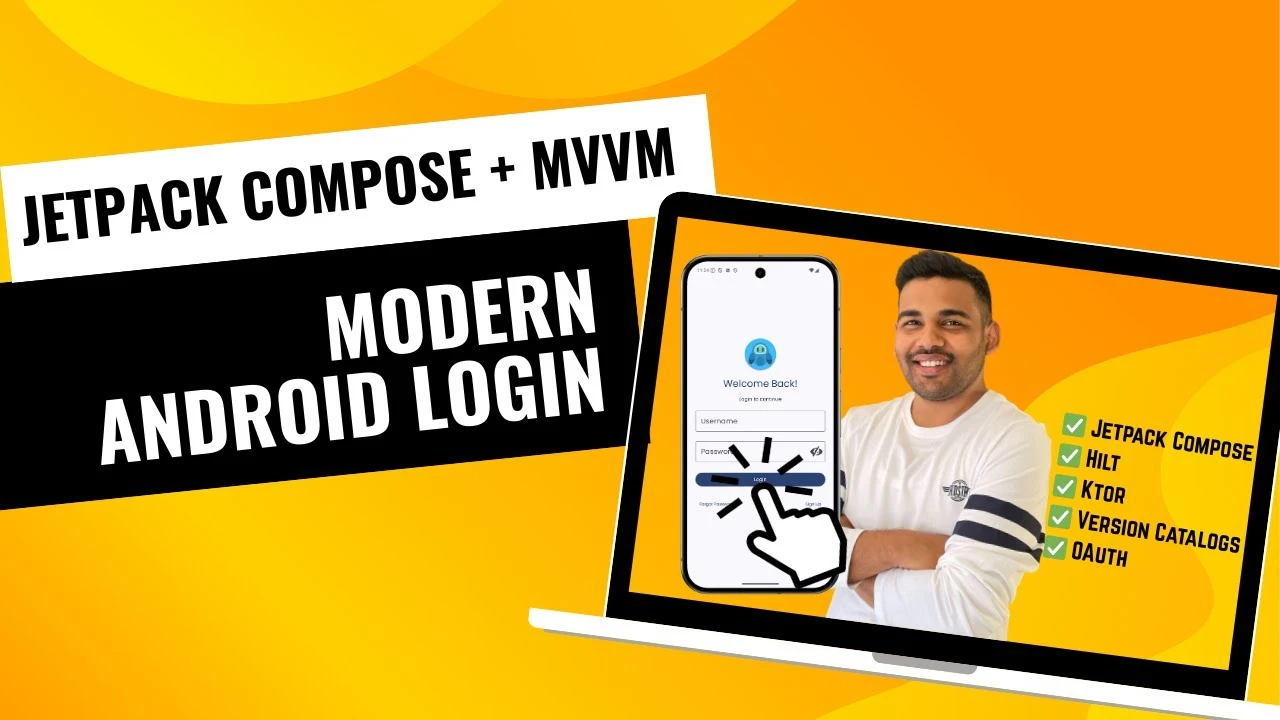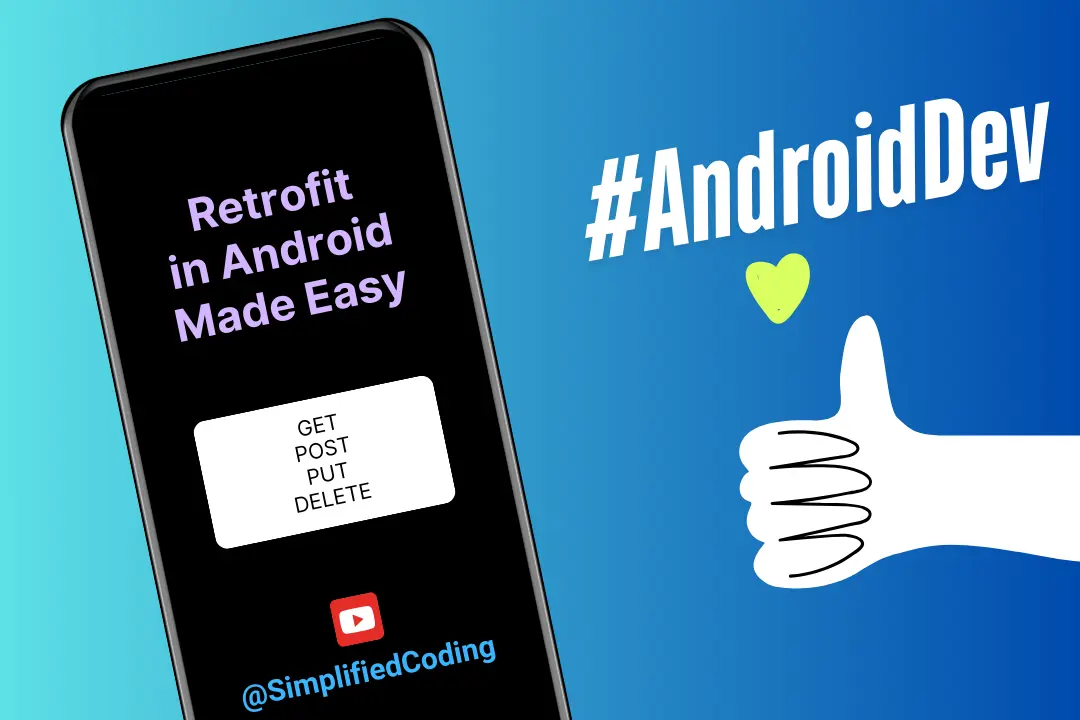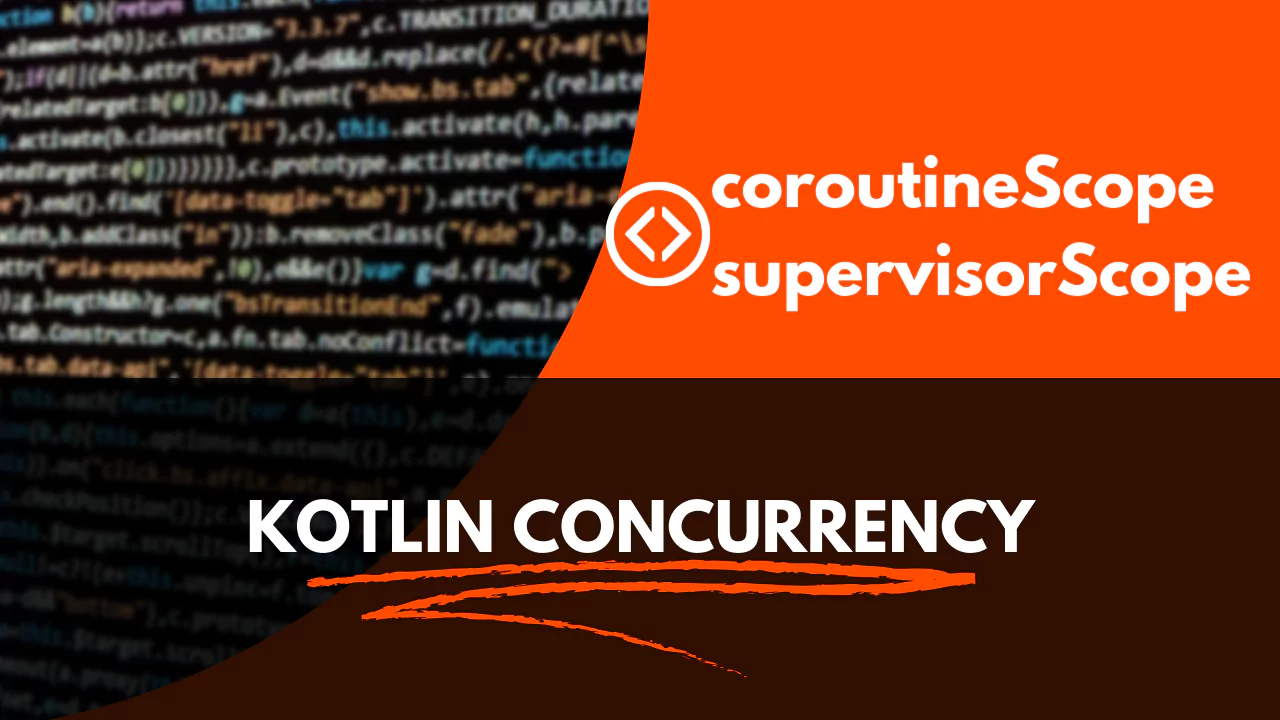Are you struggling to secure a job as an Android developer? Do you find yourself constantly searching for Android Interview Questions online? You’re in the right place. In this post, I’ll not only share commonly asked Android Interview Questions but also discuss the strategies that guided my career in landing Android developer roles.
Hello, everyone! I’m Belal Khan, a seasoned professional in Android Engineering and a recognized Google Developer Expert for Android. With over 10 years of experience in this field, I’m excited to tell you everything I’ve learned about successfully navigating job interviews.
This post is for new Android developers who are having a hard time getting their first job.
Are you struggling to get your first job as an Android Developer?
Before we proceed, let’s address a straightforward reality. If you find yourself facing challenges securing your first job, it may indicate a skills gap. It’s crucial to understand that simply memorizing interview questions from the internet won’t guarantee success. Genuine proficiency is the key. If you lack the essential skills for an Android developer role, regrettably, landing your first job might be challenging. Let’s kick off by discussing a checklist of prerequisites to guide you in the right direction.
Checklist
- Java & Kotlin Programming Language
- Basics of Android App Development
- Understanding Git
Now, let’s break down the three points mentioned above one by one.
Java & Kotlin Programming Language
Firstly, make sure your basics are solid. I’m not expecting you to be an expert coder who can tackle extremely challenging data structure and algorithm questions rapidly. However, you should, at the very least, have a clear understanding of the fundamentals. This means being proficient in writing code in Java or Kotlin.
Basics of Android App Development
After grasping the language, focus on mastering the basics of Android app development. By fundamentals, I mean building at least one application showcasing essential Android elements.
UI Design: Take a Figma design and translate it into Jetpack Compose UI, or at least XML UI. Considering the evolving landscape, familiarize yourself with Jetpack Compose.
Functionality: Make the design functional by implementing features. For instance, retrieve business data from an API and perform operations based on the fetched data.
Architecture: Once you’ve got these covered, get yourself into understanding the latest architectural aspects of Android development. It’s beneficial to explore at least one architecture, like MVVM, to produce efficient code in your work. While you might overlook this as a fresher, dipping your toes into one architecture is a good practice.
I would highly recommend to check my latest android course “Architecting Excellence: A Deep Dive into Multi-Module Android Apps“.
Understanding Git
Almost every organization depends on Git as their version control system for developers to collaborate easily. Git is really important when you’re part of a team. Therefore, you need to grasp how to use Git properly. Learning Git will make your teamwork more effective, and it will assist you in managing code changes efficiently.
After going through these checklists, you’re ready to land your first job in terms of skills. However, there are a few more things you’ll need for this initial job.
Having addressed the core skills aspect, our next step is to craft a compelling profile that can effectively attract recruiters. While acknowledging the equal importance of this element in securing your first job, we’ll look into it in a separate blog post. For now, let’s shift our focus to the primary topic of this post – Android Interview Questions.
Certainly, these questions are crucial for interviews, but it’s essential to note that merely memorizing them won’t suffice. Your strategy should revolve around comprehending and becoming proficient in the related topics. Because, by adopting this approach, you won’t find yourself in a situation where you need to rote-learn the material.
Sixty Most Commonly Asked Android Interview Questions
Kotlin is the language that is generally expected in most interviews if not Java. While your interviewer might inquire about Java, this post will specifically focus on Kotlin. The following are some of the most common questions that an interviewer may discuss with you at the beginning of the interview.
Note that I am not providing answers as I discourage rote learning. Therefore it is advisable to review my Kotlin for Beginners Tutorial Series first, especially if you are an absolute beginner. Additionally, remember to subscribe to Simplified Coding on YouTube, as I will be releasing concise, one-minute videos addressing each of the questions below.
Kotlin Basics
- What is
Kotlin, and how does it differentiate fromJava? Additionally, what advantages do you perceive in opting forKotlinoverJava? - Could you elaborate on
Nullable TypesinKotlin, and how they contribute to the language’s design? - Distinguish between ‘
val‘ and ‘var‘ inKotlin, highlighting their specific use cases and implications. - Compare and contrast ‘
lateinit‘ and ‘lazy‘ inKotlin, outlining when it is preferable to use one over the other. - Examine the purpose and significance of the ‘
init‘ block inKotlin, particularly in the context of class initialization. - Discuss the features and utility of a ‘
data class‘ inKotlin, emphasizing its role in simplifying the creation of classes for data storage. - Explore the concepts of ‘
sealed class‘ and ‘sealed interface‘ inKotlin, elucidating their applications within class hierarchies. - How does the ‘
when‘ expression function inKotlin, and in what scenarios would you typically employ it? - Explain the
internalvisibility modifier inKotlin, and when would you choose to use it within a module? - Elaborate on the significance of the ‘
open‘ keyword inKotlin, particularly in the context of class inheritance and method overriding. - Describe the purpose and usage of a
Companion ObjectinKotlin, emphasizing its role within a class. - Differentiate between ‘
inline‘, ‘noinline‘, and ‘crossinline‘ inKotlin, illustrating their applications within function declarations. - What does the ‘
reified‘ keyword signify inKotlin, and in what situations is it commonly employed? - Examine the role of the ‘
const‘ keyword inKotlin, particularly in relation to compile-time constants. - Delve into the concepts of
Higher Order FunctionsandLambdasinKotlin, illustrating their significance and practical applications. - Explore the various
Scope FunctionsinKotlin, including ‘let‘, ‘run‘, ‘with‘, ‘also‘, and ‘apply‘, and discuss their distinctive use cases. - Explain the concept of
Extension FunctionsinKotlin, detailing how they contribute to code organization and reusability. - How does the
Elvis Operator (?:)function inKotlin, and when is it commonly employed in code scenarios? - Can you describe the process of creating a
Singleton ClassinKotlinand discuss its advantages in certain contexts? - Provide an overview of
Kotlin Collections, detailing the types available and their specific use cases in programming.
Kotlin Coroutines
- Compare and contrast the use of
launchandasyncin Kotlin coroutines, highlighting their respective applications and when to use each. - What defines a suspending function in Kotlin, and how does it differ from a regular function?
- Distinguish between suspending and blocking functions in Kotlin, outlining their characteristics and impact on program execution.
- Explain the purpose and usage of
withContext()in Kotlin coroutines, detailing how it facilitates context switching within asynchronous tasks. - Dive into the concept of Coroutine Dispatchers in Kotlin, discussing their role in managing the execution of coroutines on different threads.
- What is a
Flowin Kotlin coroutines, and how does it enhance asynchronous programming? - Explore various
Flow Operatorsin Kotlin, such asfilter,map,retry,debounce,distinct, etc., and elucidate their applications within asynchronous data streams. - Differentiate between
Cold FlowandHot Flowin Kotlin coroutines, emphasizing their distinct characteristics and use cases. - Explain the concepts of
StateFlow,SharedFlow,ChannelFlow, andCallbackFlowin Kotlin coroutines, detailing their roles in managing state and handling asynchronous events. - Explore exception handling with Kotlin coroutines and Flows, providing insights into strategies for effectively managing errors within asynchronous workflows.
Object Oriented Programming
- Define Object-Oriented Programming and outline its fundamental principles.
- Discuss the concepts of Classes and Objects in the context of Object-Oriented Programming.
- Explain the concept of Encapsulation in Object-Oriented Programming and its role in information hiding.
- Describe the mechanism of inheritance in Object-Oriented Programming, emphasizing the reuse of code and hierarchical relationships.
- Illustrate how polymorphism is implemented in Kotlin, highlighting the versatility of methods and their adaptability to different data types.
- Explain the concept of Method Overloading in Kotlin, emphasizing the ability to define multiple methods with the same name but different parameters.
- Explore the Delegation Concept in Kotlin, detailing how it allows one class to use functionalities from another class.
- Discuss visibility modifiers in Kotlin, including
public,private, andprotected, and explain how they control access to class members. - Explain the significance of the
overridekeyword in Kotlin, particularly in the context of method overriding. - Define the
innerkeyword in Kotlin and discuss its application in the context of nested classes.
Android
- Outline the essential components of an Android application.
- What does ANR (Application Not Responding) signify in the context of Android applications?
- Define Memory Leak and explain its implications in Android development.
- Distinguish between Activity and Fragment in the Android framework.
- Why is it advisable to avoid passing arguments to a Fragment Constructor?
- How can you create a scrolling list in your app, and how do you handle large lists efficiently?
- Where is the recommended place to store sensitive information like an Auth Key in an Android application?
- Explore various methods of persisting data in an Android app.
- What is the purpose of WorkManager, and how can it be practically utilized in Android development?
- Define ViewModel in the context of Android architecture.
- Discuss the reasons for and instances when following an architecture plan for your app is beneficial.
- Would you prefer Jetpack Compose over XML for Android UI development?
- Explain the concept of Service in Android and its common use cases.
- Elaborate on Broadcast Receivers in the Android ecosystem.
- How do you perform API calls in Android, and which library would you choose for this task? Why?
- Have you utilized Image Loading libraries in Android? If yes, which one is your favorite and why?
- Explain Room Database and its advantages over SQLite in Android development.
- How would you employ sealed classes to handle API response errors in an Android app?
- Define Parcelable and its role in Android application development.
- What is the significance of dependency injection in Android development? Additionally, which library do you use, and why?
Remember few questions are opinion based and interviewers often ask these type of question to understand your expertise in the subject. So remember to explain everything in detail when asked a question like this and try your best to justify your take on it.
Android Interview Questions: Summary
In this post, we talked about what you need before you start looking for your first job as an Android developer. I left out the part where I’ll guide you on creating a strong developer profile, but no worries, I’ll cover that in an upcoming post. Then, I shared some of the common questions you might get asked in an interview for an Android Developer role.
That’s all for this post, and I hope you find this content helpful. To appreciate the effort in creating these free resources, please share this post with your friends. If you know someone aiming to become an Android developer, pass it on! If you feel confident about the Android Interview Questions provided, cracking your interview should be a breeze.
Stay tuned for the next post, where I’ll share tips and tricks on building a strong developer profile to attract recruiters. Feel free to drop a comment if you have any questions about the Android Interview Questions or need guidance on landing your first job. Thank you!



